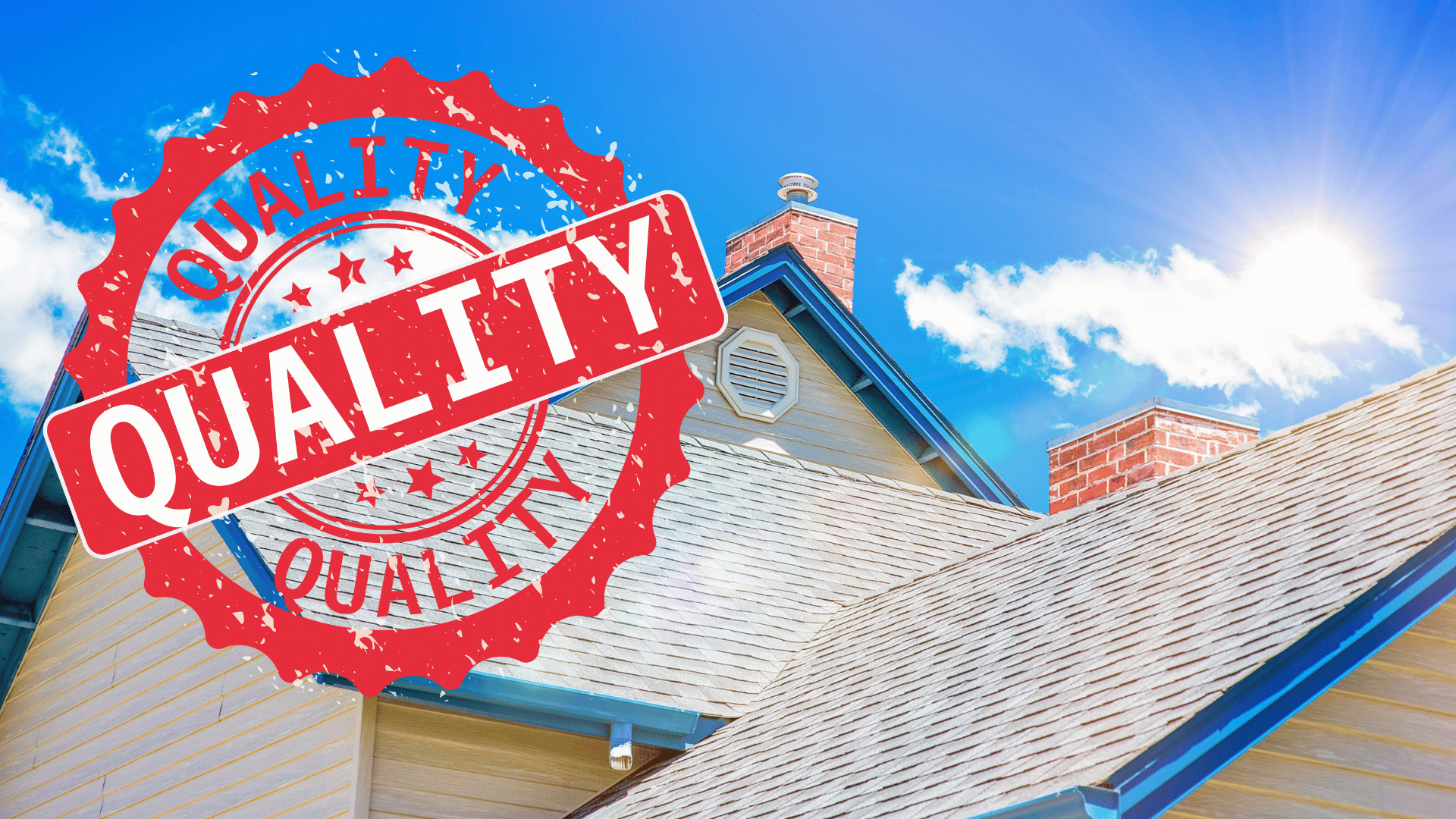Choosing a Roofing Contractor: A Homeowner's Ultimate Guide
Navigating the Roofing Maze: A Comprehensive Guide to Finding Your Ideal Roofing Contractor

Introduction
In the realm of homeownership, few decisions are as significant as choosing the right roofing contractor. Your roof plays a pivotal role in safeguarding your home, family, and belongings from the elements. When it comes to selecting the best professional for the job, you'll want to consider several factors. Let's dive into the nitty-gritty details of what to look for in a roofing contractor.

The Importance of a Sturdy RoofNew Paragraph
Before we embark on this roofing odyssey, it's crucial to understand the significance of a reliable roof. Your roof isn't just a cap for your house; it's your first line of defense against the forces of nature. A well-constructed roof not only keeps you dry but also adds value to your home. So, what should you keep in mind when you embark on the journey of choosing a roofing contractor?
Credentials, Reputation, and Experience
Verifying Credentials
When it comes to entrusting your roof to someone, you should ensure they have the credentials to handle the job. Here's what you need to look for:
License and Insurance: A reputable roofing contractor should be licensed and adequately insured. Licensing demonstrates their commitment to professionalism, and insurance protects you and the workers in case of accidents.
Certifications:
Check for manufacturer certifications. These signify that the contractor has received training and is certified to install specific roofing materials.
Reputation Matters
A good reputation is worth its weight in gold. You want to hire a contractor with a solid track record. Here's how to assess their reputation:
Online Reviews:
Check online platforms like Yelp, Google, and Better Business Bureau for reviews. Pay attention to both positive and negative feedback.
Ask for References: Request references from the contractor. Contact previous clients and inquire about their experience.
The Power of Experience
Experience is a key indicator of a contractor's expertise. Roofing can be complex, so consider these factors:
Years in Business: A contractor with several years in business is more likely to have encountered a variety of roofing challenges.
Past Projects:P Review the contractor's portfolio. It can give you insights into their capabilities and style.

Local vs. National Roofing Contractors
Local Advantage
When choosing a roofing contractor, consider whether you want a local or national company. Here's why going local might be your best bet:
Familiarity with Local Codes: Local contractors are well-versed in local building codes and regulations, ensuring your roof complies with all requirements.
Quick Response: Local contractors can address issues promptly and are more accessible in case of emergencies.
National Contractors
National contractors have their advantages too, such as:
Greater Resources: They may have access to a wider range of materials and more extensive warranties.
Brand Recognition: National companies often have established reputations, which can provide peace of mind.
Price and Value
Understanding the Costs
Roofing projects come with varying costs. You need to understand how the pricing works and more importantly get a regular roof inspection from your local trusted Roofing Expert. Read this article to find out more, "Why Are Regular Roof Inspections Essential For Every Homeowner?
Materials:
The type of roofing material you choose will significantly impact the overall cost. Asphalt shingles are more budget-friendly, while metal or slate can be pricier.
Labor: Labor costs are a significant part of the project. Skilled contractors may charge more, but they deliver quality work.

Beware of Low Bids
While it's tempting to go for the lowest bid, beware of contractors who significantly undercut the competition. It could be a red flag:
Quality Compromises:
A low bid might indicate the use of subpar materials or a rush job that sacrifices quality.
Hidden Costs: Some contractors may initially quote low, only to add hidden costs as the project progresses.
Contracts and Warranties
The Importance of a Contract
Knowing the life span of your roof is essential to having a long terms shield for your home. Read this article to learn more about, "How Long Does Your Roof Last? Factors That Impact a Roof's Lifespan." A detailed contract is your safety net in a roofing project. It should include:
Scope of Work:
Clearly define the work to be done, including the type of materials, start and end dates, and any additional services.
Payment Schedule:
Outline how and when payments will be made, and specify any down payments.

The Power of Warranties
Warranties protect your investment. Ensure that your contractor provides:
Workmanship Warranty: A guarantee on the quality of their work. It's typically separate from the material warranty.
Material Warranty: Many roofing materials come with warranties. Ensure you understand the terms and duration.
Project Timeline
Setting Realistic Expectations
Roofing projects take time, and understanding the timeline is crucial. Here's what you need to know:
Weather Considerations:
Weather can delay roofing projects. Discuss how the contractor plans to handle weather-related delays.
Unforeseen Issues:
Sometimes, hidden problems are only discovered once the project begins. Your contract should address how these will be handled.
Environmental Impact
Roofing and Sustainability
Sustainability is a growing concern. Consider the environmental impact of your roofing project:
Recyclable Materials: Ask if the contractor uses materials that can be recycled, reducing waste.
Energy Efficiency: Consider cool roofing options that reflect more sunlight and absorb less heat, reducing your energy bills.
Communication and Feedback
Effective Communication
Good communication is the cornerstone of a successful project:
Accessibility:
Ensure the contractor is easy to reach, and you can easily communicate your concerns or ask questions.
Updates:
Regular updates on the project's progress can provide peace of mind.

Conclusion
Choosing a roofing contractor is no walk in the park, but with careful consideration, you can ensure your home is protected by a sturdy, reliable roof. Remember to evaluate credentials, reputation, experience, and pricing. Contracts and warranties are your safety net, and understanding the project timeline is vital. Think about the environmental impact, and prioritize effective communication. With these considerations in mind, you're well on your way to finding the perfect roofing contractor for your home.
FAQs
1. What should I look for in a roofing contractor's license?
A valid roofing contractor's license should be issued by the relevant local authorities. It demonstrates that the contractor meets the required standards and regulations for roofing work in your area.
2. Can I trust online reviews when assessing a contractor's reputation?
Online reviews are a valuable resource, but they should be considered in conjunction with other factors. Reach out to references provided by the contractor and verify their reputation through multiple channels for a more comprehensive assessment.
3. How long should a workmanship warranty be for a roofing project?
Workmanship warranties typically range from 2 to 10 years, depending on the contractor and the type of roofing work. Ensure you understand the terms and duration of the warranty provided by your chosen contractor.
4. Are national roofing contractors always more expensive than local ones?
Not necessarily. While national contractors may have access to a wider range of materials and resources, pricing can vary widely. It's essential to obtain quotes from both local and national contractors and assess the value they offer.
5. What is a "cool roofing" option, and how does it benefit me?
"Cool roofing" refers to roofing materials and techniques designed to reflect more sunlight and absorb less heat compared to traditional roofing materials. These options offer several advantages:


OUR COMPANY
OUR SERVICES

